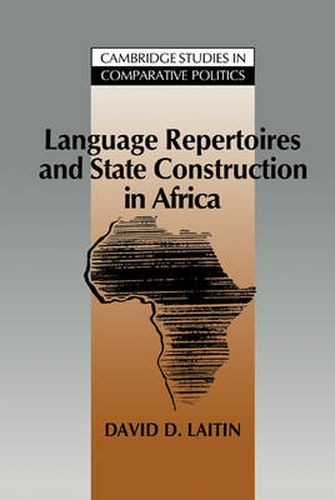Readings Newsletter
Become a Readings Member to make your shopping experience even easier.
Sign in or sign up for free!
You’re not far away from qualifying for FREE standard shipping within Australia
You’ve qualified for FREE standard shipping within Australia
The cart is loading…






Most African countries have a population composed of a multitude of language groups, and most African citizens have a varied repertoire allowing them to rely on different languages for use in the home, at school, in the market, at work, and in communicating with political authorities. Language Repertoires and State Construction in Africa analyses the complex language scene in Africa today and asks whether this distinctive web of language use is symptomatic of the early stage of state construction. If so, one would expect that as each of these states develops there will be a rationalization of language use and agreement on a common language within the country’s borders. Alternately, Africa’s language scene may be the result of a particular historical context of state construction, with the implication that political development will not lead to the one-state, one-language outcome typical of the idealized nation-state. Relying on comparative analysis and the techniques of game theory, Laitin delineates Africa’s most common pattern of state building, leading up to what he calls a ‘3 + 1 language outcome.’ Game theory not only allows him to speculate on Africa’s future, but it allows him as well to make recommendations to language planners on how that future might be arrived at more peacefully and efficiently.
$9.00 standard shipping within Australia
FREE standard shipping within Australia for orders over $100.00
Express & International shipping calculated at checkout
Most African countries have a population composed of a multitude of language groups, and most African citizens have a varied repertoire allowing them to rely on different languages for use in the home, at school, in the market, at work, and in communicating with political authorities. Language Repertoires and State Construction in Africa analyses the complex language scene in Africa today and asks whether this distinctive web of language use is symptomatic of the early stage of state construction. If so, one would expect that as each of these states develops there will be a rationalization of language use and agreement on a common language within the country’s borders. Alternately, Africa’s language scene may be the result of a particular historical context of state construction, with the implication that political development will not lead to the one-state, one-language outcome typical of the idealized nation-state. Relying on comparative analysis and the techniques of game theory, Laitin delineates Africa’s most common pattern of state building, leading up to what he calls a ‘3 + 1 language outcome.’ Game theory not only allows him to speculate on Africa’s future, but it allows him as well to make recommendations to language planners on how that future might be arrived at more peacefully and efficiently.